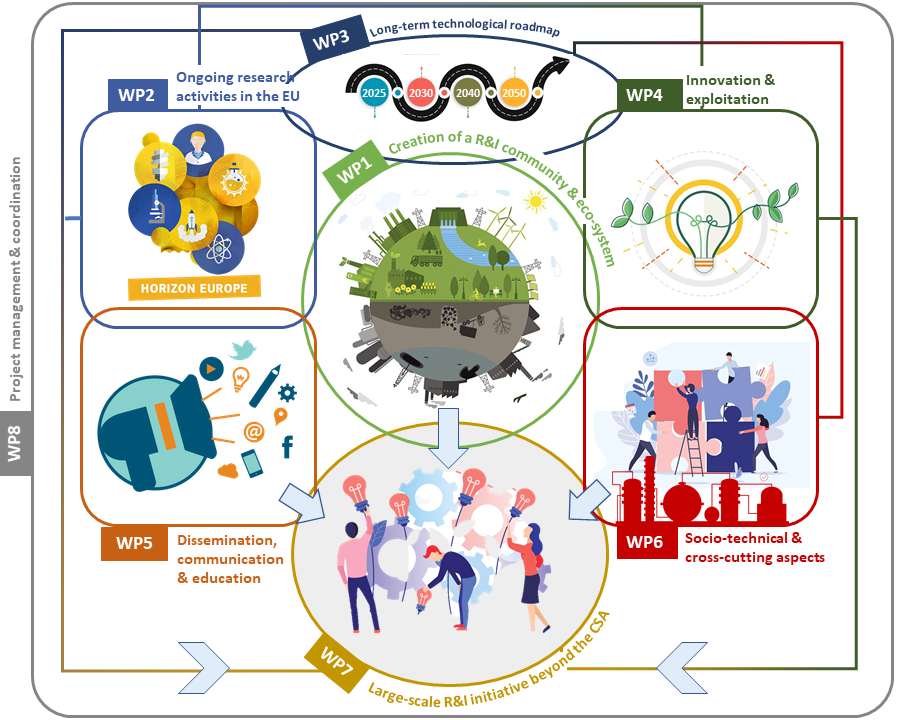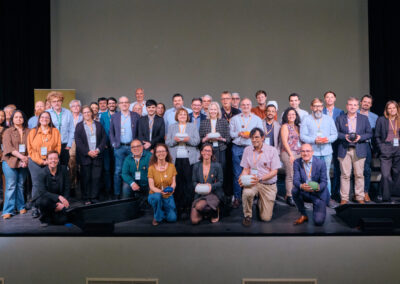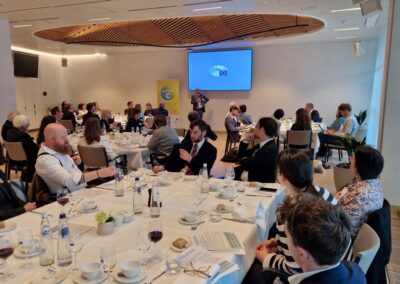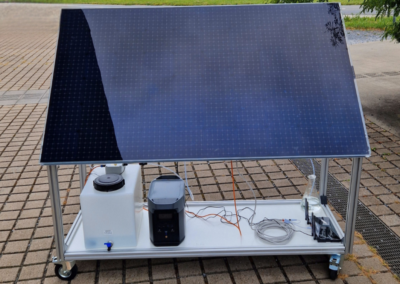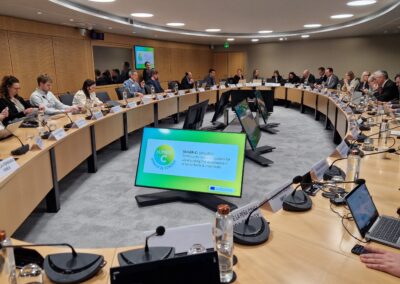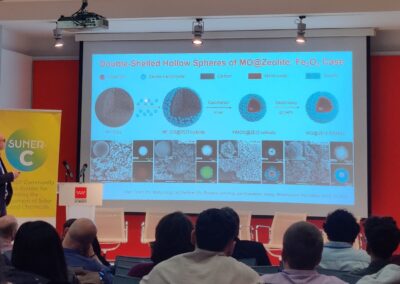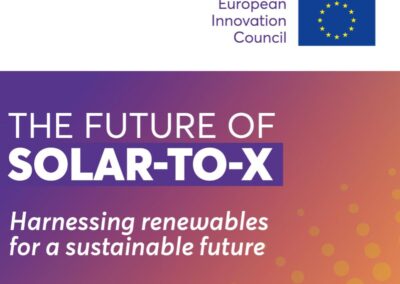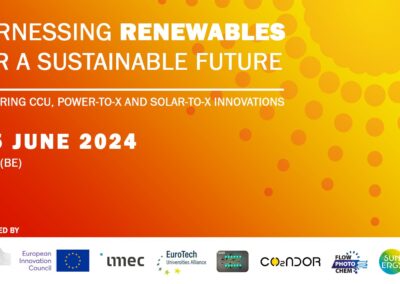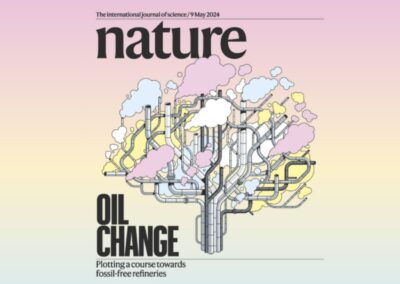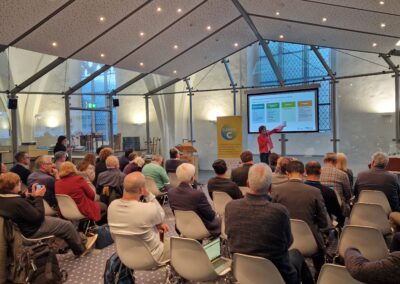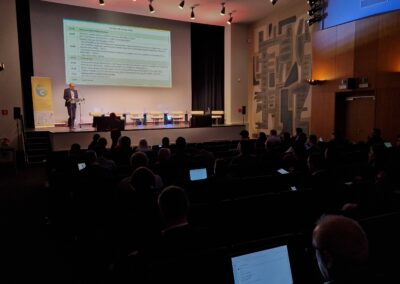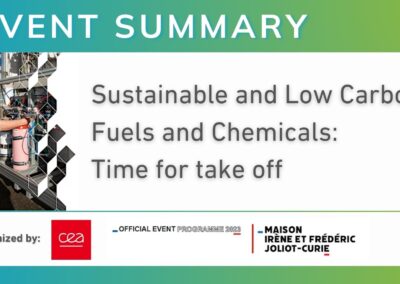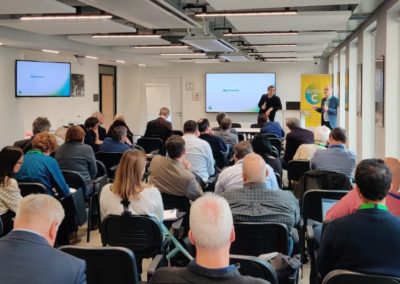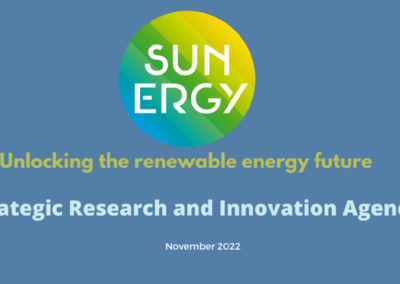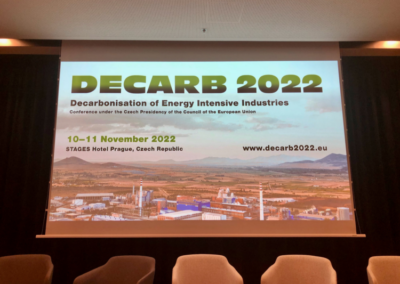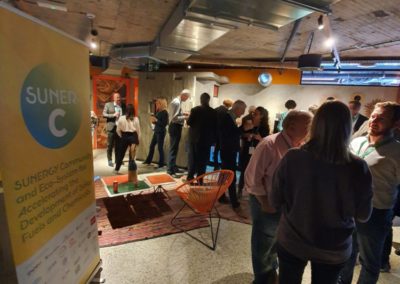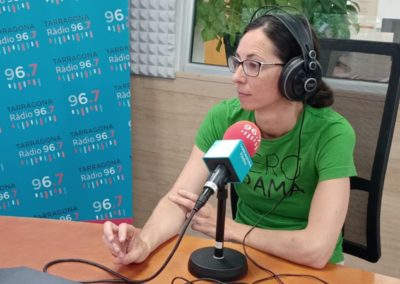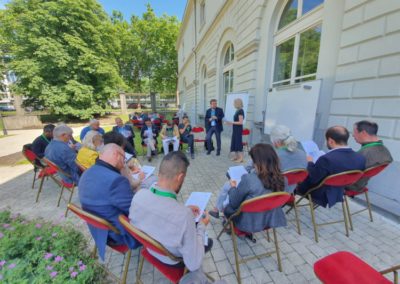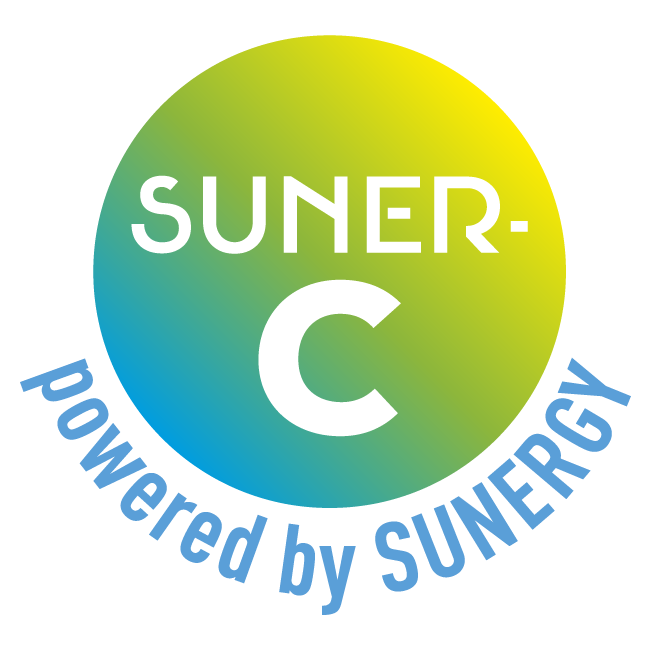



How can we achieve the EU’s goal of becoming the first climate-neutral continent by 2050? SUNER-C is the EU-funded project (4M € over 3 years) coordination and support action on the next generation of energy carriers to replace fossil-fuels. 30 different EU partners gathered together to work on building an ecosystem of companies, researchers, societal actors and policymakers, to accelerate the transition of technologies for the generation of solar fuels and chemicals, from the laboratory to large-scale industrial applications.
The European Union is clear to stay on a steady path to climate neutrality through its plan against greenhouse emissions, the ‘Fit for 55’ package, with the EU Green Deal as a blueprint. Unless deep cuts are made in carbon dioxide (CO2) and other greenhouse gas emissions, it will be very challenging to reach that goal. Renewable energy based on photovoltaics and wind energy needs to be supplemented with energy carriers to supply fuels to sectors and processes difficult to electrify and to create non-fossil carbon feedstock for the chemical industry. These so-called solar fuels and chemicals are most often analogous to their fossil counterparts and can be incorporated into the existing energy value chains with minimal adjustments to the existing infrastructure. These fuels are based on the transformation of abundant compounds, such as carbon dioxide, water and nitrogen, into synthetic fuels, chemicals and materials by using renewable energy.
SUNER-C is the recent Coordination and Support Action (CSA) powered by SUNERGY Community and funded by the EU programme Horizon Europe (Grant Agreement nr. 101058481). CSAs are projects that convey actions such as dissemination, communication, networking, support services, policy dialogues, studies, strategic plannings, among others.
SUNER-C project, entitled “SUNERGY Community and eco-system for accelerating the development of solar fuels and chemicals”, aims to develop and expand the innovation ecosystem for renewable fuels and base chemicals, uniting science, business, societal and other relevant stakeholders. This aggregation aims at developing a common vision and a technological roadmap for accelerating the scale-up of technologies, as key elements towards the EU 2050 target of net-zero emissions.
The sustainable manufacturing of solar fuels and chemicals at the needed scale using a circular economy approach is in sight, but not yet reach without a concerted action between academia, industry, governments, and societal stakeholders. A large-scale, joint action is urgently needed to speed up innovation, and to further develop existing and future relevant technologies. SUNER-C aims at fulfilling this gap by laying the foundation stone for a Large-Scale Research and Innovation (LRSI) initiative at the European level for a decisive push towards circular economy, EU sovereignty and climate change mitigation.
Objectives
The overarching objective of the SUNER-C CSA is to aggregate fragmented knowledge and develop the framework conditions to overcome scientific, technological, organizational and socioeconomic challenges to accelerate innovation and enable the required transition of technologies for solar fuels and chemicals from laboratory or demonstrator level to large-scale industrial and broad societal applications.
Creation of innovation ecosystem on solar fuels and chemicals
Develop a Strategic Technological Roadmap for the broad implementation in the industry and in society
Prepare a Large-Scale Research and Innovation (LRSI) initiative, ready to be launched after the CSA
Promote communication, dissemination and education of the next generation of Europeans
Work Packages
SUNER-C consortium is formed by 30 industry, academic, societal and network organizations in 12 countries. Each partner is involved in the work plan of SUNER-C, which is based on eight Work Packages aligned with the main objectives. WP1 will create an inclusive innovation eco-system around a shared vision on solar fuels and chemicals. On this basis, WPs 2 to 6 will have as objectives: to foster synergies between ongoing projects within the eco-system (WP2); to elaborate a roadmap and a blueprint to implement it (WP3); to develop an exploitation and innovation strategy (WP4); to develop and implement a communication and dissemination plan (WP5); to address socio-technical and cross-cutting aspects (WP6). These WPs cover SUNER-C’s lifetime and beyond, with the preparation for the LSRI initiative, treated in WP7. Finally, WP8 is dedicated to the coordination and management of the CSA.
Expected Impacts
SUNER-C CSA aims at catalysing the development and integration of solar fuels and chemicals at a reduced cost to substitute fossil-based ones. To achieve that goal, the SUNER-C consortium will focus on developing a European ecosystem on solar fuels and chemicals to speed-up technology development. Ultimately, the vision is set to preapre a large-scale R&I initiative within the EU funding landscape
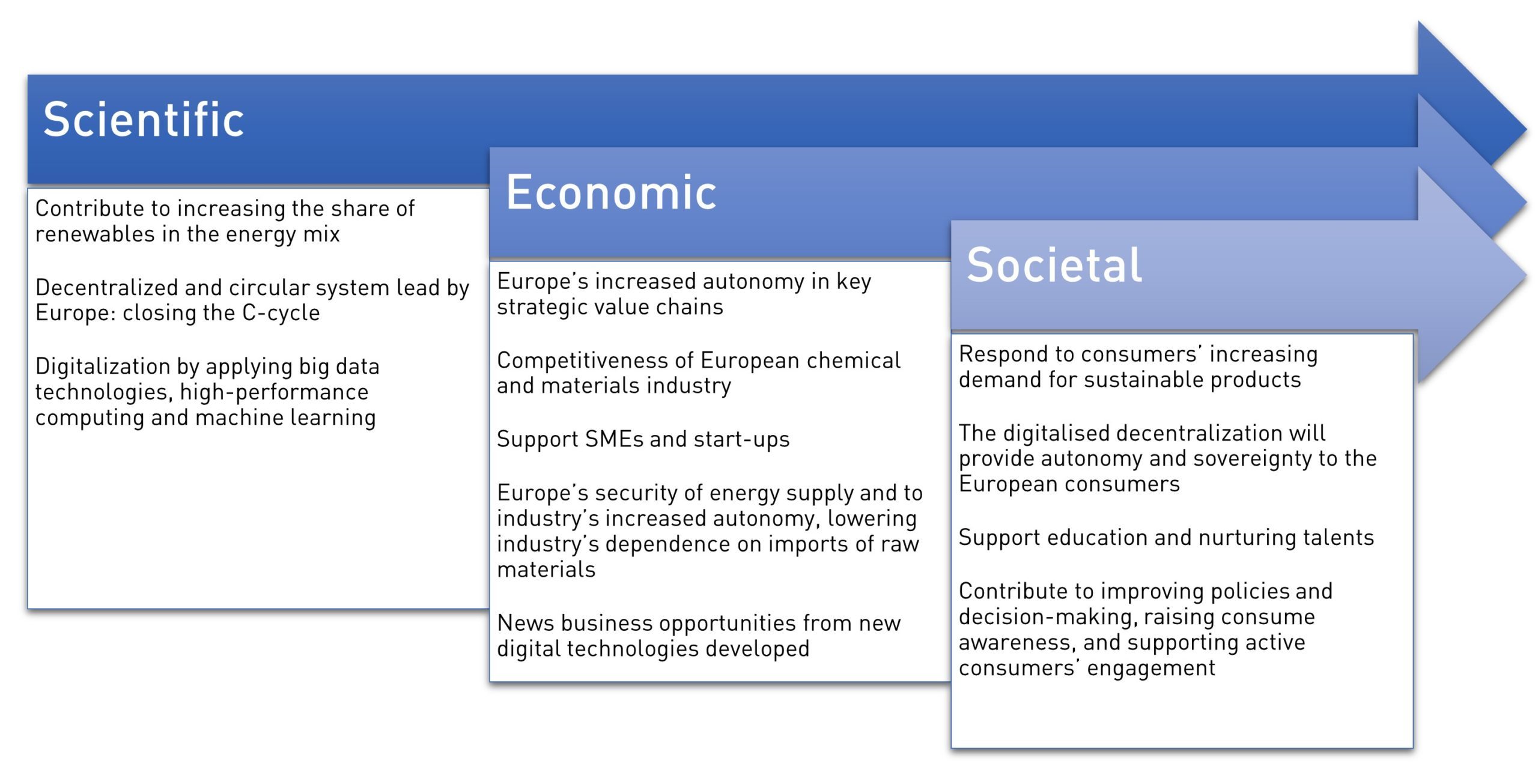
Scientific
- Contribute to increasing the share of renewables in the energy mix
- Decentralised and circular system led by Europe: closing the C-cycle
- Digitalisation by applyting big data technologies, high-performance computing and machine learning
Economic
- Europe’s increased autonomy in key strategic value chains
- Competitiveness of European chemical and materials industry
- Europe’s security of energy supply and to industry’s increased autonomy, lowering industry’s dependence on imports of raw materials
- New business opportunities from new digital technologies developed
Societal
- Respond to consumer’s increasing demand for sustainable products
- The digitalised decentralisation will provide autonomy and sovereignty to the European consumers
- Support education and nurturing talents
- Contribute to improving policies and decision-making, raising consume awareness and supporting active consumer’s engagement
Outcomes
Do you want to know about the achievements reached so far?
Strategic Research and Innovation Agenda (SRIA)
Read more about SUNERGY’s SRIA and the designed pathway towards a climate-neutral Europe
Educational portal
Learn what are solar fuels and chemicals, why they are important for the future and how we can implement them
SUNER-C Deliverables
Here you will find the public deliverables outcoming from the SUNER-C CSA
Partners-only area
Click here to access to the intranet space for SUNER-C partners to work and share together
SUNER-C News
Stay tunned to the latest news about the project!
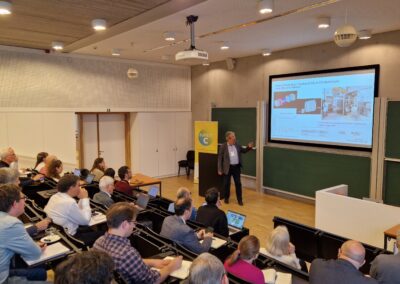
Industry, policy and research stakeholders gather at the SUNER-C workshop to discuss innovations in solar fuels and chemicals
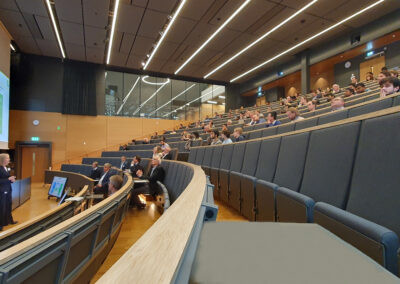
EVENT SUMMARY: Uppsala University Conference on Sunlight- and Power-to-X: Solar Fuels, Electrofuels, Green Hydrogen and CO2-valorization
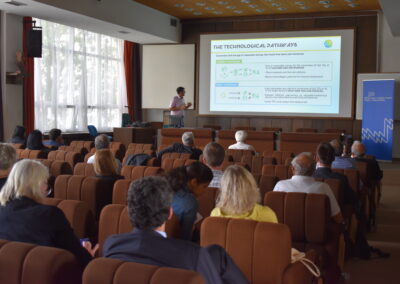
EVENT SUMMARY: Transition pathway toward sustainable fossil-free fuels and base chemicals – a SUNERGY regional meeting
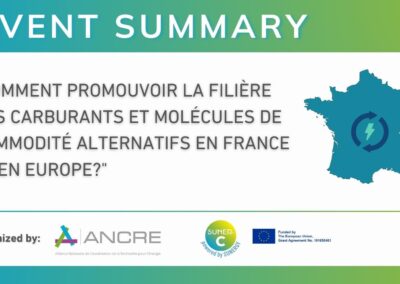
EVENT SUMMARY: Séminaire ANCRE-SUNER-C: comment promouvoir la filière des carburants et molécules de commodité alternatifs en France et en Europe?
Contact us
Ask us anything about the SUNER-C CSA project!

